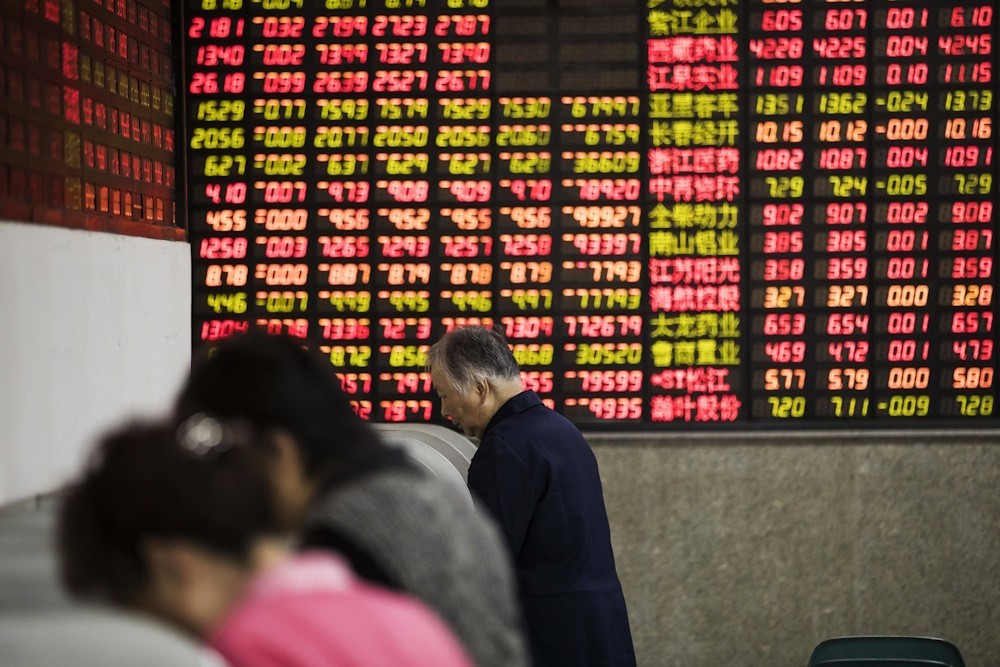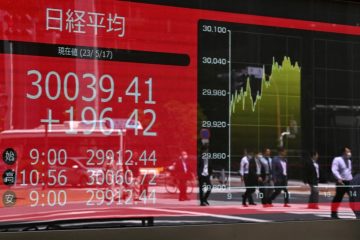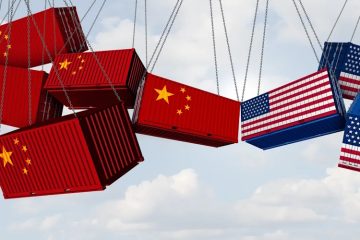Chinese equities poised for tumultuous year

Chinese equities are poised for another tumultuous year as markets assess the ramifications of Beijing’s fluctuating stimulus measures in light of the potential challenges presented by U.S. trade policy. China’s extraordinary measures to stimulate growth invigorated markets in late September, enhancing the previously subdued outlook for Chinese equities. In a mere six trading days in early October, the benchmark Shanghai Composite Index surged to its highest point since February 2022.
The initial optimism surrounding a potential resurgence in Chinese equities has been dampened by a series of disappointing stimulus measures, leading to subsequent selloffs. The escalating tensions between the U.S. and China have contributed to a prevailing risk-averse sentiment. The prospect of Donald Trump’s re-election has solidified concerns over a potential trade war, creating a volatile environment that is dampening the outlook for Chinese equities.
Uncertainty is anathema to markets. “China is confronted with a significant mountain of uncertainty,” remarked Michael Kelly, global head of multi-asset at PineBridge Investments. Nuveen, the investment management firm, has adopted a marginally more optimistic stance on Chinese equities, influenced by recent stimulus measures, according to Laura Cooper, head of macro credit. “However, when we consider the current tariff uncertainty, we have moderated that viewpoint,” remarked the global investment strategist.
The recent stimulus initiatives by Chinese officials have not garnered much enthusiasm, with the latest focus on local government debt while neglecting other fundamental challenges. One possible explanation is that Beijing is conserving its resources for a future trade conflict. The potential announcement of a substantial stimulus package by China, often referred to as a “big-bang” approach, could indeed ignite a renewed upward momentum in the markets. However, apprehensions persist that the response may prove insufficient and untimely.
“At this point, our attention is directed towards the magnitude and speed of their stimulus response,” stated Cooper from Nuveen. She perceives a potential risk that Beijing may choose to bide its time until the first quarter of the following year, when greater clarity is expected from the U.S. “In our view, that is likely excessively postponed.” Analysts at Morgan Stanley perceive a constrained likelihood that China will implement sufficient fiscal stimulus aimed at boosting consumption and housing in 2025, partly due to concerns about establishing a precedent that could lead to expectations for welfare-like assistance.
According to a report, increases in U.S. tariffs and the possible expansion of additional restrictions on China may pose significant challenges to corporate earnings and market valuations. In the absence of further clarity, portfolio managers advise focusing on Chinese firms that benefit from robust domestic demand, possess strong fundamentals, and exhibit reduced dependence on exports.
Currently, no single sector appears poised to benefit from the latest round of stimulus, according to Daiwa equity strategist Patrick Pan. In the near term, he anticipates a retreat in both the Hong Kong and mainland Chinese markets. As China shifts its economic focus towards domestic demand rather than exports, manufacturers of consumer goods such as home appliances and service providers in sectors like travel appear to be promising long-term investments, Pan noted.
According to Homin Lee at Lombard Odier, onshore retail investors may discover prospects that are more aligned with domestic interests, particularly in sectors that China identifies as strategically significant, such as electric vehicles, or within the realm of “little giants,” which pertains to small- and medium-sized enterprises possessing essential technologies. According to Lee, a senior macro strategist at a wealth and asset management firm, foreign investors would be prudent to concentrate on relatively well-managed entities within the Hong Kong or offshore markets.
Such stocks exhibit a pronounced sensitivity to the fluctuations of the Chinese economy and are generally priced lower, he noted. Prominent entities within the consumer discretionary, technology, media, and telecommunications sectors may present opportunities, provided one adopts a somewhat more assertive stance, he remarked. There is a prevailing sentiment among analysts that, whether promptly or not, Beijing is poised to inject additional vigor into its economy. Given the current low stock valuations, opportunities abound for discerning investors.
Strategists at Goldman Sachs have indicated that recent discussions with policymakers in Beijing imply that support measures are likely to be enhanced to mitigate growth risks and strengthen the equity market. A recent report indicates a sustained preference for the domestic A-share market, partly attributable to the equity funding initiatives implemented by authorities. Valuations in Hong Kong appear reasonable; however, they lack significant prospects for economic or earnings growth. “Our preference is to concentrate on China specifically,” GS stated.
For investors willing to navigate the current landscape, equities that exhibit resilience against trade disruptions, possess a solid foundation in China, and demonstrate robust fundamentals present opportunities to prepare for a future recovery, especially within the A-share market, which is more influenced by domestic rather than international policy shifts. “While incorporating Chinese stocks can provide valuable diversification, should they be positioned as the primary catalyst for returns in your portfolio?” The situation presents considerable challenges. Lee from Lombard Odier remarked.










